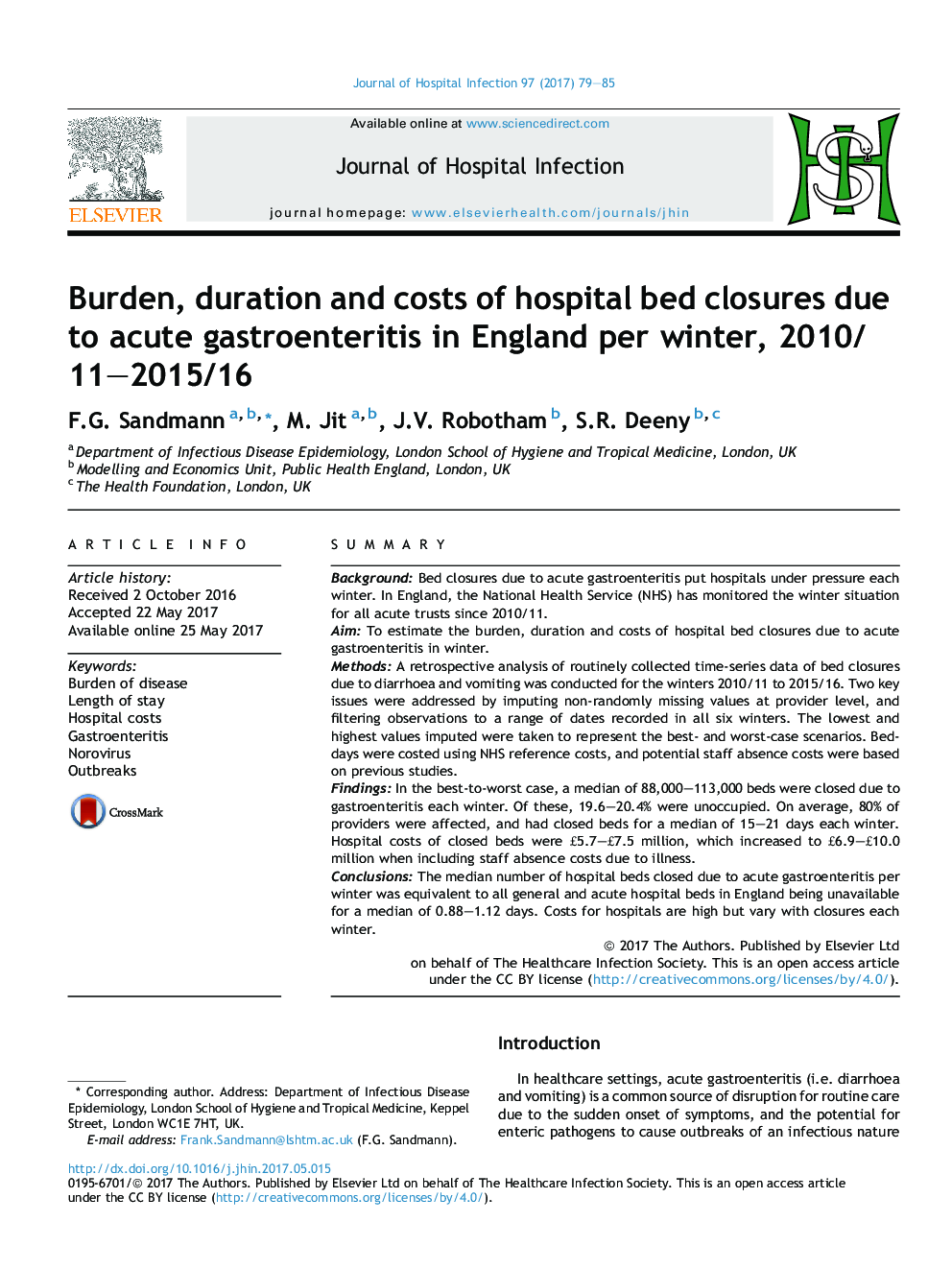| Article ID | Journal | Published Year | Pages | File Type |
|---|---|---|---|---|
| 5668375 | Journal of Hospital Infection | 2017 | 7 Pages |
SummaryBackgroundBed closures due to acute gastroenteritis put hospitals under pressure each winter. In England, the National Health Service (NHS) has monitored the winter situation for all acute trusts since 2010/11.AimTo estimate the burden, duration and costs of hospital bed closures due to acute gastroenteritis in winter.MethodsA retrospective analysis of routinely collected time-series data of bed closures due to diarrhoea and vomiting was conducted for the winters 2010/11 to 2015/16. Two key issues were addressed by imputing non-randomly missing values at provider level, and filtering observations to a range of dates recorded in all six winters. The lowest and highest values imputed were taken to represent the best- and worst-case scenarios. Bed-days were costed using NHS reference costs, and potential staff absence costs were based on previous studies.FindingsIn the best-to-worst case, a median of 88,000-113,000 beds were closed due to gastroenteritis each winter. Of these, 19.6-20.4% were unoccupied. On average, 80% of providers were affected, and had closed beds for a median of 15-21 days each winter. Hospital costs of closed beds were £5.7-£7.5 million, which increased to £6.9-£10.0 million when including staff absence costs due to illness.ConclusionsThe median number of hospital beds closed due to acute gastroenteritis per winter was equivalent to all general and acute hospital beds in England being unavailable for a median of 0.88-1.12 days. Costs for hospitals are high but vary with closures each winter.
